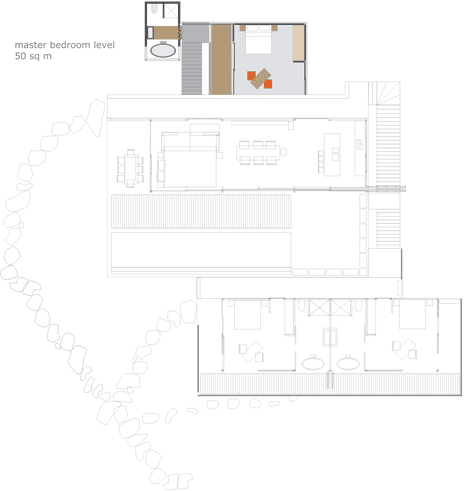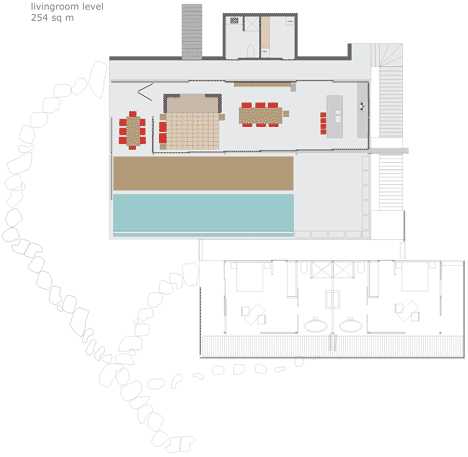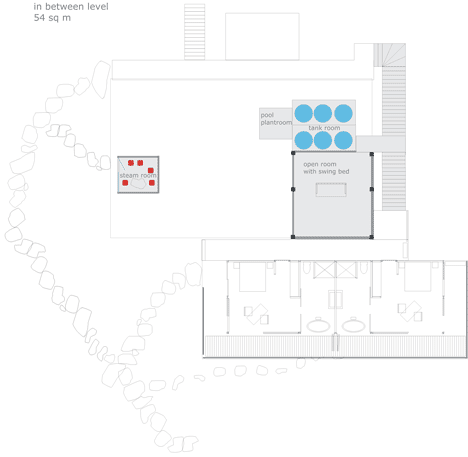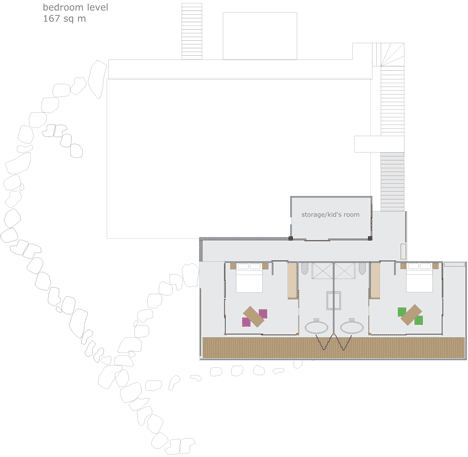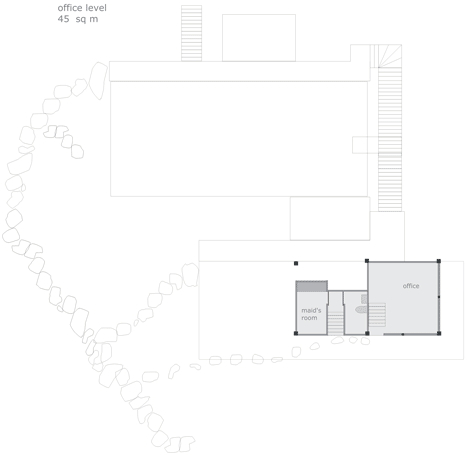Marc Gerritsen's skeletal Naked House exposes its insides to the seafront
Architect and photographer Marc Gerritsen designed this house for himself on a Thai island, with an skeleton-like structure that frames sea views (+ slideshow).
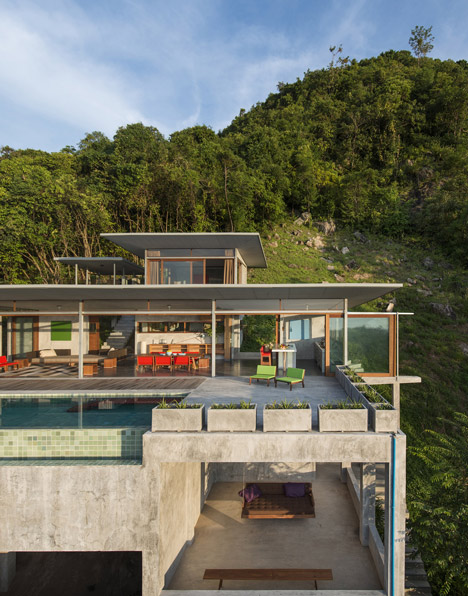
Nestled into a hillside amidst the nature reserves of Koh Samui, Naked House gives Marc Gerritsen an escape from his busy city life, which sees him travel frequently between Taiwan and other Asian countries.
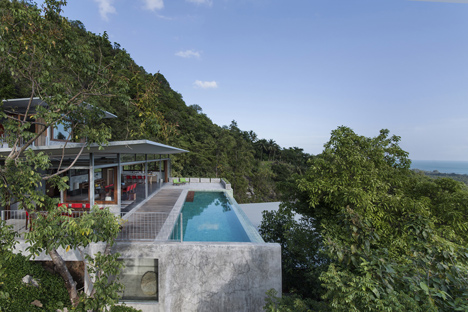
"Life in Taipei is very hectic, and I needed a place to escape. I really wanted a quiet area and a fantastic view," said Gerritsen. "The house was a return to the basic values in life: good clean air, wide-open space, quiet solitude."
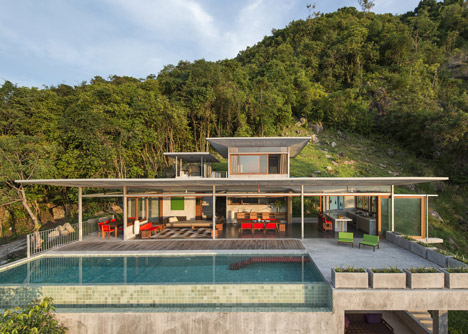
The five-storey house is formed of a series of levels that cascade down the hillside, protruding like the tiers of a staircase.
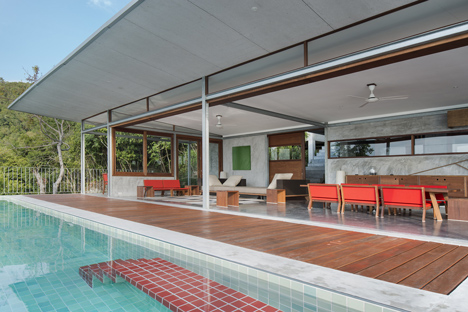
Gerritsen chose very basic materials to emphasise the location and view. The base of the house is concrete, while a galvanised steel frame rests on top to contain the two upper floors.
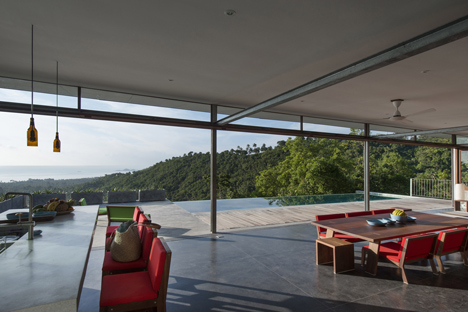
"There are no embellishments. The focus is on the space rather than the materials," said the architect.
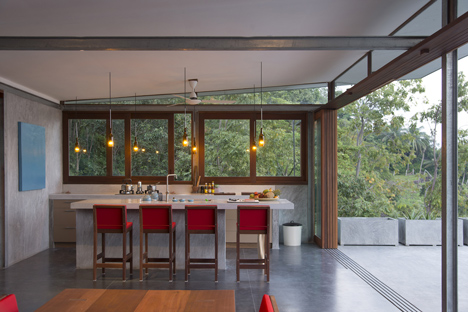
An open-plan living space occupies the ground floor, fronted by wooden-framed windows that slide back to overhang the facade. These windows open the space out to a large terrace with wooden decking, a tiled swimming pool and concrete planting boxes.

The living space contains a simple kitchen with low-level cupboards on one side, a seating area on the other, and a dining area sandwiched in between. There is also a patio shaded by the flat steel roof canopy.
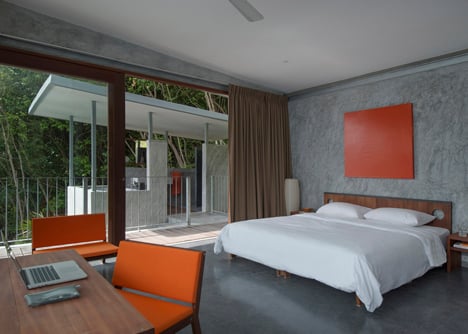
An exterior concrete staircase leads up to a master bedroom, which perches at the top of the house. This is a self-contained structure that also features sliding windows, balcony and an over-hanging roof.
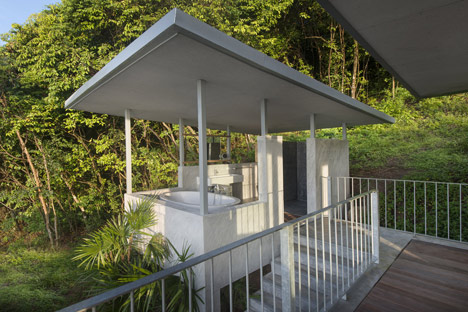
An open-air en suite sits alongside the bedroom, offering panoramic views of the surroundings from the bath and shower.
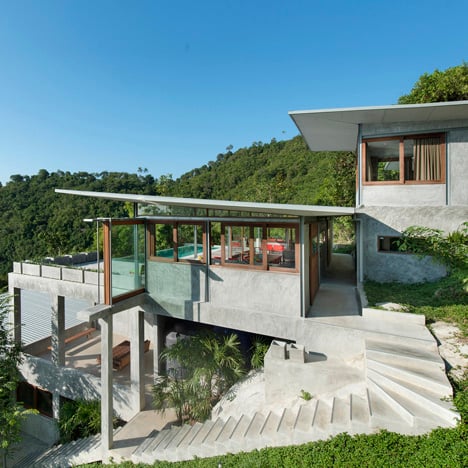
Another staircase wraps around the outside of the house, tracing the curve of the hillside from the living space down to floors below.
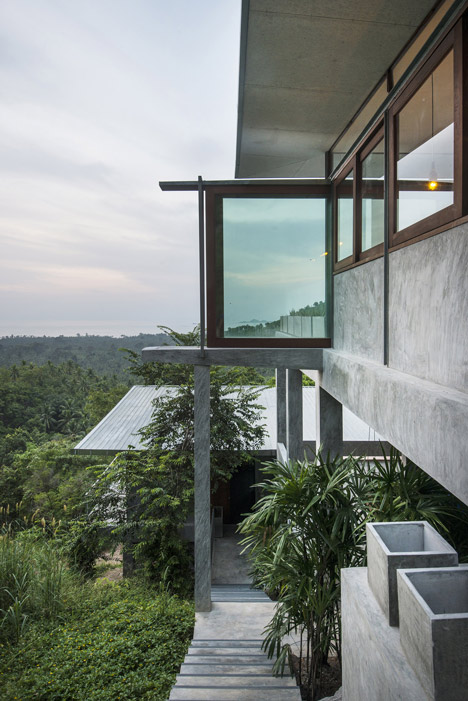
An exposed room with a swinging sofa occupies the space below the deck, along with a steam room.
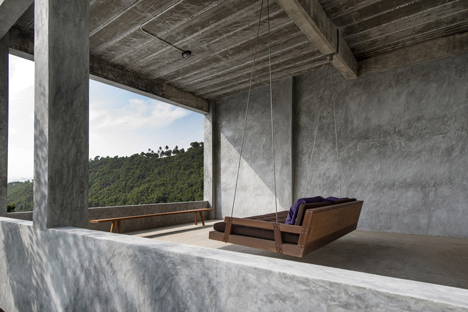
The next floor down contains two symmetrical bedrooms, where large sliding wooden doors reveal huge bowl-like baths, while the final floor houses houses an office and a maid's room.
Here's a description from Marc Gerritsen:
The Naked House
The main thing about this location is the expanse of the surroundings and the quietness. Life in Taipei is very hectic, and I needed a place to escape. I really wanted a quiet area and a fantastic view. Having an open plan living room, with doors that can totally slide away, which look out at the pool and the ocean – that's something I'd been thinking about for a long time. With this plot, I was able to put the pieces of the puzzle together. The house was a return to the basic values in life: good clean air, wide-open space, quiet solitude. With these basic values you can be in a space that is uncluttered, and your mind can become still. That's also the reason behind the very basic materials that I have used: concrete, wood, steel and glass. There are no embellishments. The focus is on the space rather than the materials.
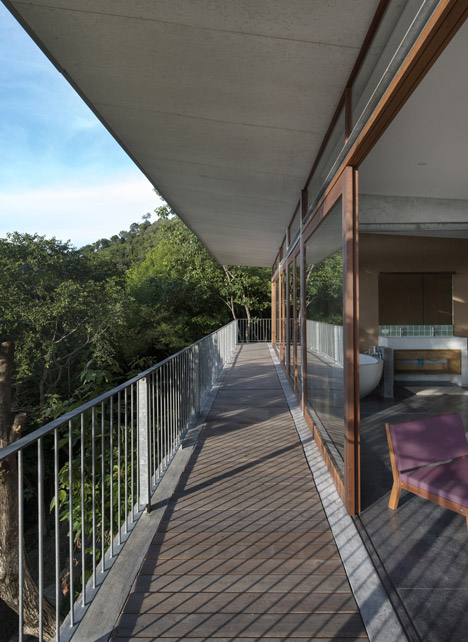
I originally planned three stories: two bedrooms on the bottom; the pool, living area and kitchen on the middle level; and an office on top. But I've added a bathroom on the living room level, a laundry room and pantry. I wanted a simple kitchen, with no overhead cupboards or tall fridge, so the pantry is good for storage. I added a freestanding open-air bathroom, as the top room became a magnificent master bedroom, which needed an en-suite.
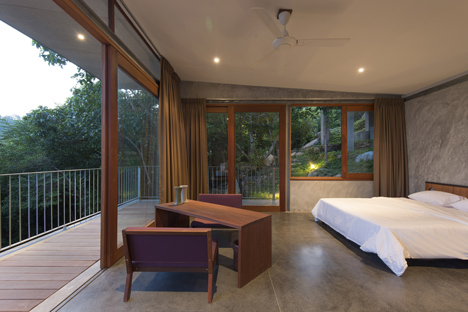
The tank and plant room became a large open room with a swing bed, underneath the deck I added a steam room, and the space below the bedrooms now houses an office and maid's room. So it ended up being five stories – the result of a work in progress.
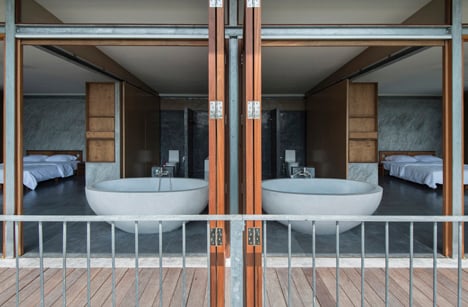
My work over the last few years as an architectural and interior photographer has taught me what not to do. Looking at all the incredibly fine detailed properties I photographed in Asia. I thought: "Is this really necessary to be comfortable? If I walk on a concrete floor or if I walk on a marble floor, is it going to make my living experience so much better?" No. You just need a floor to walk on. I am interested in a return to basics, in a luxury monastic way of living.
